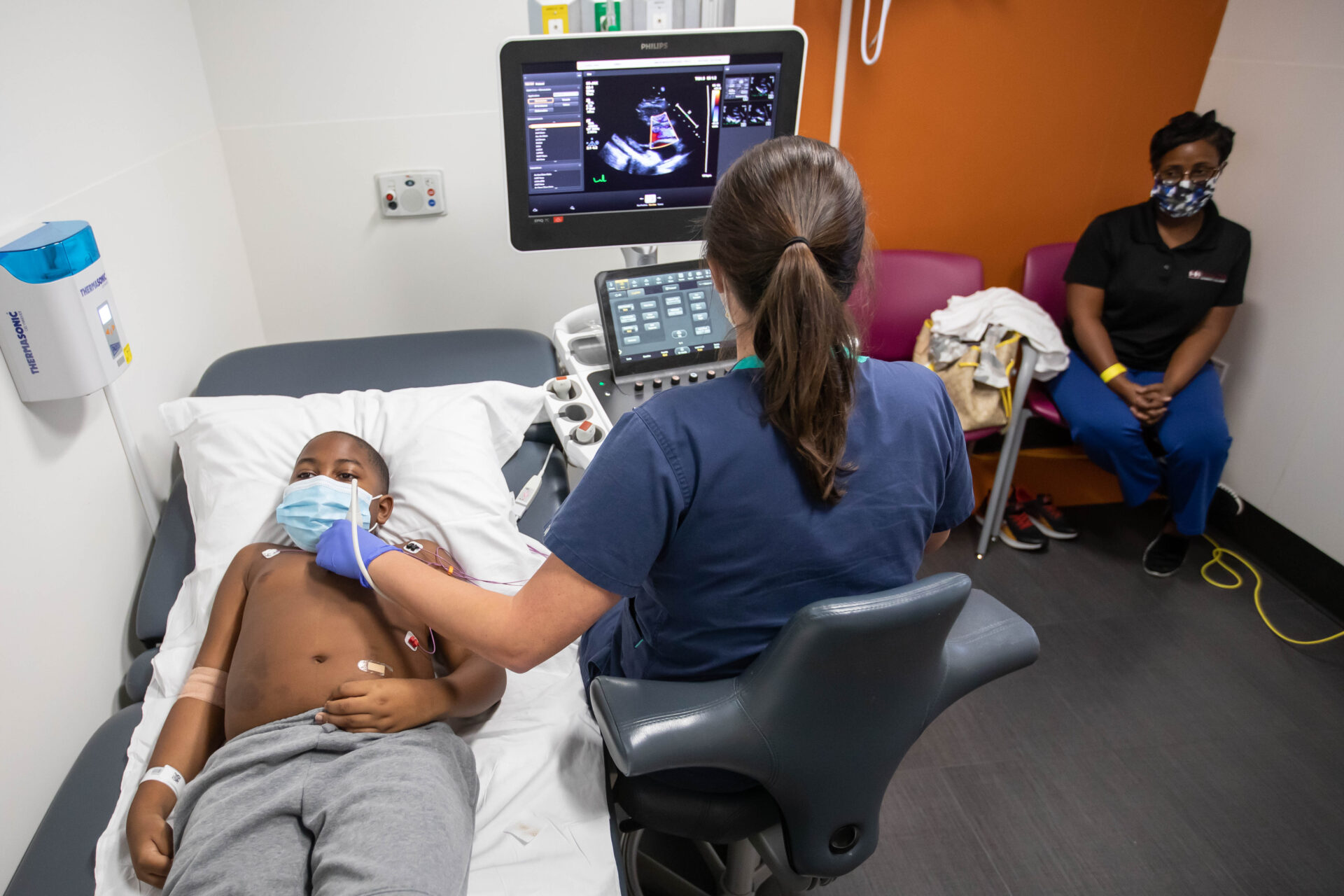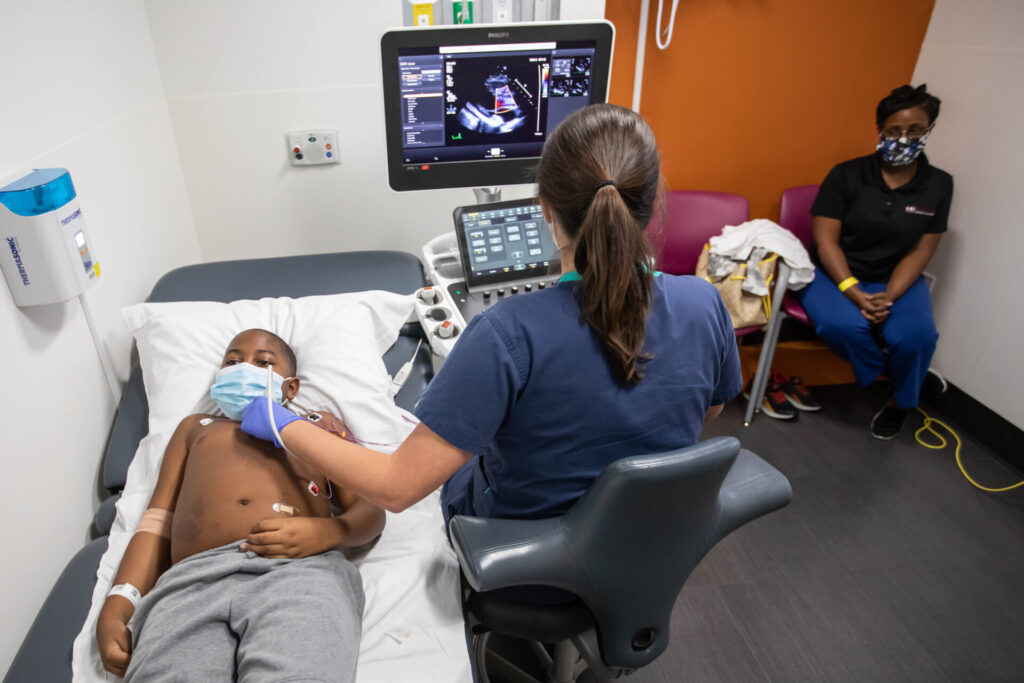Featured
Pediatric Experts Unite to Fight COVID After-Effects with New Children’s of Mississippi clinic
Xavier Gardner had a mild case of COVID-19 in August, but he’s still fighting the effects of the MIS-C that followed the viral infection.

By Annie Oeth
UMMC Communications

Xavier Gardner had a mild case of COVID-19 in August, but he’s still fighting the effects of the MIS-C that followed the viral infection.
Xavier had symptoms similar to a sinus infection, said his mother Cheryl Gardner of Raymond. “After quarantine, he seemed fine to go back to school, but by that Wednesday, when he was doing homework, he was shivering with chills and had a low-grade fever.”
Xavier’s fever began to rise, and nausea and vomiting followed.
Another worry was Xavier’s autism. “I was concerned that he might not be able to communicate what he was feeling or if he was hurting,” Gardner said.
After a visit to his pediatrician, Xavier was sent to the children’s hospital.
“It was really scary, because of the possibility of blood clots and the inflammation with MIS-C,” Gardner said, “but they took fantastic care of Xavier. I wouldn’t take him anywhere else.”
He and other children in the state who have had MIS-C have a team of pediatric experts in infectious diseases, hematology, cardiology and rheumatology at their side at Children’s of Mississippi’s outpatient MIS-C clinic. Through the twice-monthly clinic, patients can see multiple physicians during one visit.
MIS-C, or Multisystem Inflammatory Syndrome in Children, is a rare but serious condition that is thought to be a delayed reaction to COVID-19. In MIS-C, the immune system of a child who has been infected with COVID-19 attacks the body’s healthy cells, particularly those involving blood vessels, the heart and other organs.
“In layman’s terms, COVID causes the immune system to malfunction and start attacking itself, and the condition that follows is MIS-C,” said Dr. Catherine Gordon, associate professor of pediatric hematology and oncology, and one of the experts treating children with MIS-C in the hospital and after they go home.
According to the Mississippi Department of Health, more than 83 children in the state have had MIS-C between the start of the pandemic and mid-August of this year. Five of those children died.
More than 80 children have been hospitalized at Children’s of Mississippi with the condition, requiring the continuing care of multiple subspecialists. This comes as the state is still seeing acute cases of COVID-19 in children.
“What we have now is both MIS-C and severe acute COVID-19, and I think it’s because of schools dropping mask mandates,” said Dr. Charlotte Hobbs, professor of pediatric infectious diseases and director of UMMC’s MIS-C clinic. “We saw this drop of acute COVID-19, and then MIS-C, and now acute COVID-19 is increasing again. Acute COVID and MIS-C at the same time is something that has not happened before, and it is preventable.”
Doctors have no way of knowing which child could have a life-threatening case of MIS-C following a COVID-19 infection, Gordon said.
“The severity of the COVID infection has no bearing on whether you may have MIS-C,” she said. “Many times, patients with MIS-C do not even know they have had a COVID infection previously. As the name implies, the condition affects virtually every system throughout your body and, if left untreated, may be fatal.”
Children with MIS-C are usually hospitalized for several days to a week or more, under the care of a team of subspecialists. Treatment consists of medications to blunt the immune response as well as anticoagulation medications due to the high risk of clotting seen with MIS-C. Because the effects from the condition may last well past hospitalization, it is important for these patients to be seen in follow-up with all the same subspecialists.
Gavin Austin was among MIS-C outpatients in clinic recently, seeing Gordon among others. The 13-year-old from Madison suffered high fever following a COVID-19 infection that brought him chest pains.
“When we couldn’t get his fever down, Gavin’s doctor sent him to the Emergency Department,” said his father, Gabriel Austin.
A hospital stay followed, and now Children’s of Mississippi doctors are helping Gavin recover through outpatient visits at the MIS-C clinic.
Xavier Gardner was at the MIS-C clinic for an echocardiogram, an ultrasound of the heart’s movement, and to see an infectious diseases specialist.
“Seeing all Xavier’s doctors at one appointment is really helpful,” Gardner said.
Pediatric rheumatologist Dr. Anita Dhanrajani said multiple specialists are coming together to provide the best care to patients.
“MIS-C is a very severe disease and during their hospital stay most patients will experience some ups and downs in their clinical status,” she said. “This leads to an enormous emotional burden on the family. The least we can do to make it somewhat easy for them to navigate the system after discharge is to provide them with multi-specialty care under one roof. While the patients were being assigned to exam rooms or getting care from nurses, we specialists were getting our brain powers united to come up with the best plan of action for their management.”
Hobbs said patients of MIS-C families have been grateful for the follow-up care as their children recover.
“This clinic and support are integral for these children and families,” she said. “Every parent of one of our MIS-C patients in clinic told me how happy and appreciative they were to be able to see every subspecialty in one day.”
Gordon and Hobbs credit the entire Children’s of Mississippi team for the clinic’s smooth operation.
“Coordination of such a clinic was a major undertaking and would not be possible without the commitment of the physicians, nurses, and administrative help that were willing to take this on in addition to all their other usually scheduled clinics and responsibilities,” Gordon said. “While we all hope COVID cases continue to decline, and with it the cases of MIS-C and need for this clinic, until that happens Children’s of Mississippi is dedicated to continuing to provide this service and the best care possible for all the children of Mississippi.”


















